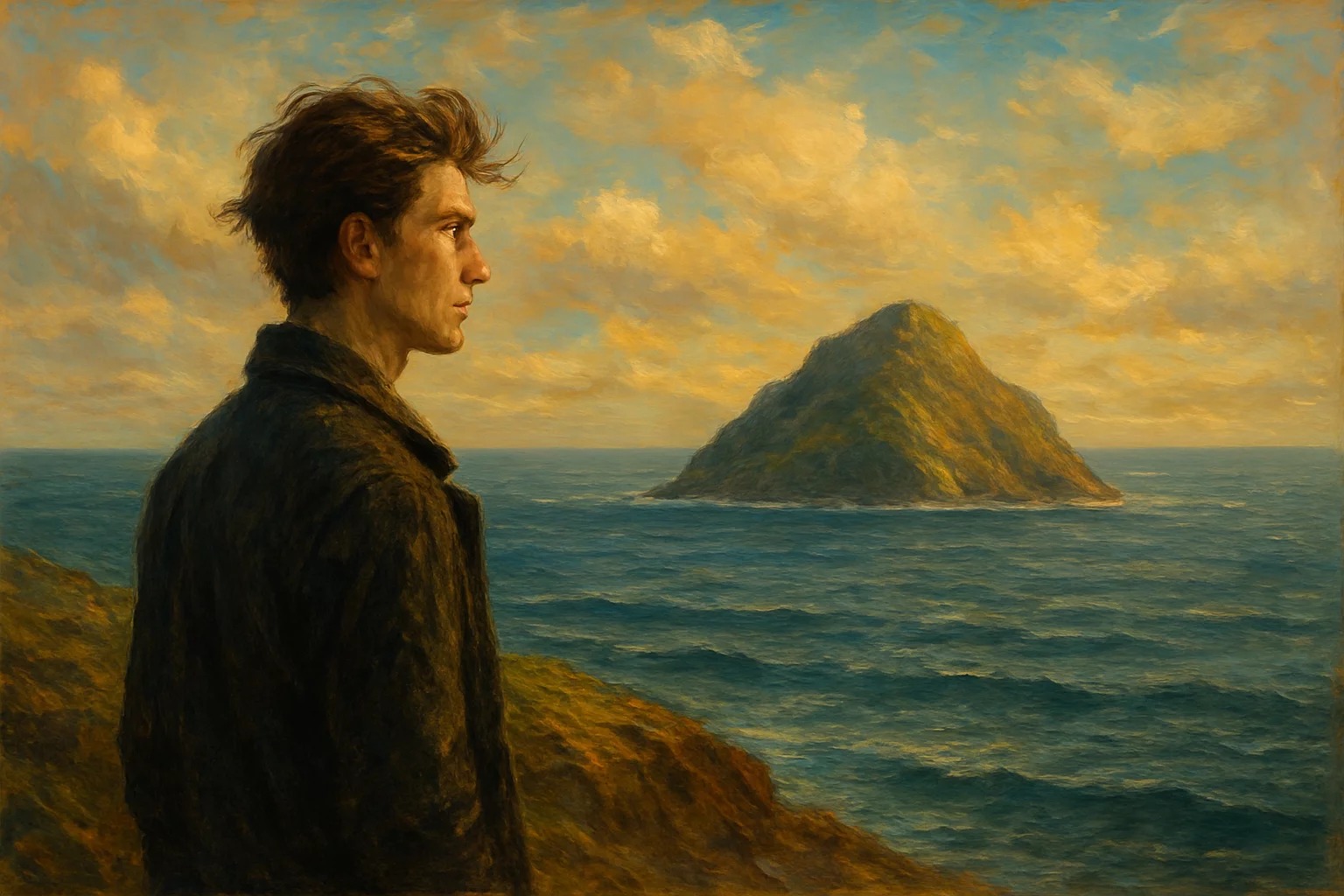The philosophy of islands reveals timeless truths about solitude, freedom, and human existence.
Islands are more than geographical landforms—they are symbols that embody separation, connection, and the paradox of human life. From ancient myths to modern reflections, the philosophy of islands helps us understand the balance between individuality and belonging.
Table of Contents
Islands as Metaphors of Individuality
At the heart of the philosophy of islands lies the idea of separation. An island, by its very nature, stands apart from the mainland. This separation echoes the existential reality of the human being. We live as individuals, isolated in consciousness, yet surrounded by the vast ocean of society.
Philosophers like Søren Kierkegaard from Copenhagen, Denmark, argued that solitude is essential for authentic living. The island symbolizes this solitude: a place where distractions fall away, and we are confronted with our deepest truths. Standing on an island shoreline, one feels both the immensity of the sea and the fragility of human existence.
From Isolation to Interconnection
Paradoxically, islands are never entirely cut off. Beneath the waves, they are connected through the hidden ridges of the ocean floor. Currents, winds, and migratory routes link them in ways unseen. The philosophy of islands teaches us that individuality and connection are not opposites but interwoven truths.
As Martin Buber noted, life gains meaning in the space between “I” and “Thou.” Likewise, the island exists both as a solitary entity and as part of an archipelago. This reminds us that human beings are simultaneously isolated selves and deeply relational beings.
The Island as a Symbol of Human Longing
For centuries, the island has served as a canvas for human imagination. In the philosophy of islands, we encounter both utopia and exile, both paradise and prison. Plato envisioned Atlantis, a symbol of lost perfection. Thomas More imagined Utopia, an island representing ideal society. In literature, from Robinson Crusoe to modern survival tales, islands become stages for human struggle, freedom, and meaning.
This dual symbolism reflects our own longings: the desire for independence and the fear of isolation, the dream of escape and the need for belonging.
Why the Philosophy of Islands Matters Today
In our digitally saturated age, the metaphor of the island feels more urgent than ever. Despite constant online connection, many feel like isolated islands, adrift in a sea of digital noise. The philosophy of islands urges balance: to embrace solitude without alienation, and to cultivate connection without losing individuality.
Travelers seek islands for retreat, while thinkers see in them a reminder of life’s paradoxes. An island, with its open horizons and clear boundaries, teaches us to pause, reflect, and rediscover simplicity.
The Island Within
Ultimately, the philosophy of islands is not about geography but about the human spirit. Each of us carries an inner island—our solitude, our identity, our search for meaning. To live wisely is to honor both the island within and the archipelago beyond: to be alone without despair, and to be connected without losing the self.
The philosophy of islands reminds us that to be human is to be both separate and united, finite yet infinite, solitary yet connected.
Direct Ferries
Routes, Schedules, Prices
Destination Guide
Frequently Asked Questions (FAQ)
- What is the philosophy of islands?
The philosophy of islands is the study of islands as symbols of human existence. It explores how islands represent solitude, individuality, freedom, and at the same time, interconnection and belonging.
- Why do islands symbolize solitude in philosophy?
In philosophy, islands symbolize solitude because they stand apart from the mainland, much like individuals stand apart in their consciousness. This separation invites reflection, authenticity, and self-discovery.
- How does the philosophy of islands relate to human connection?
While islands appear isolated, they are connected beneath the sea and through natural forces. Similarly, humans are both separate individuals and deeply connected to others, embodying the paradox of independence and community.
- What role do islands play in literature and philosophy?
Islands often appear in philosophy and literature as symbols of utopia, exile, survival, or freedom. From Plato’s Atlantis to Robinson Crusoe, islands serve as spaces where human nature and longing are revealed.

